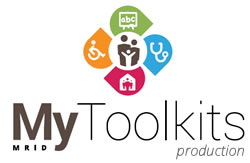In Australia, many children or young people with disability, together with their families and carers, come from culturally and linguistically diverse (CALD) backgrounds. It is vital for this to be recognised in a SchoolKit Clinic and for appropriate strategies to be put in place to avoid this causing disadvantage.
As well as considering language barriers, cultural issues need to be considered. This will ensure that interactions are respectful, the family’s priorities are met, and appropriate strategies are developed with them and offered to them.
Cultural concepts of disability, mental illness, medications, and other conditions may be very different for people from different cultures. Even where English is fluently spoken there may be some difference in the way these concepts are understood by the family and the other clinic partipants. To gain some understanding of this it is often helpful to ask families questions such as:
‘When you hear this – [diagnosis or term], how do you understand this in your words?’ or ‘How would your family react to and understand this?’.
Involving the Extended Family
Some CALD families have complex extended care networks, involving other relatives and community members. These people may not attend the clinic but would still benefit from receiving information that is appropriately presented and translated. Often this can make a big difference to the way a family secures the ongoing support of their wider community network as things change for them and their child over time.
Family members who do not attend a clinic may still be key objectors to approaches, strategies or medications that are suggested, so the timely provision of information is important. This will help the immediate family to explain the SchoolKit Clinic process that they are involved in and play their part in achieving the objectives set during the clinic.
Involving Interpreters
When working with clients and families where English is not readily spoken or understood, it is essential to ask the family if they would like an interpreter to attend a SchoolKit Clinic. Stressful situations, such as talking about a child’s intellectual disability, can block a person’s ability to use English when it is not their first language.
Even where a person is usually able to communicate very well in English, it may give them more confidence to involve an interpreter at a clinic to offer them additional support.
Either the school or health team can arrange this service. It should be explained that this service is free and confidential. Ideally an interpreter will be present at the clinic, though a phone interpreter may be an acceptable alternative.
Where an interpreter is involved it is important that conversation is directed to the child or family rather than to the interpreter; this is critical for helping to establish productive relationships.
It may also be necessary to have ongoing interpreter support during follow-up with the family to ensure that agreed plans have been understood and any concerns have been addressed adequately.
For additional advice or support for the family, involving services such as the Transcultural Mental Health Centre may be valuable.




